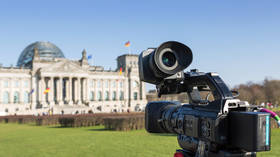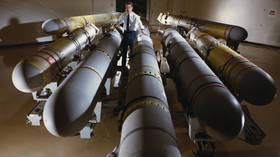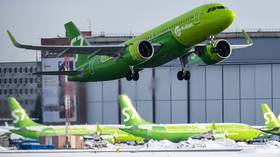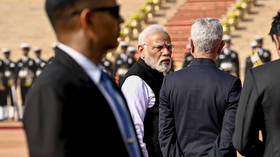Russia mulling retaliation against German outlets after RT DE ban – media
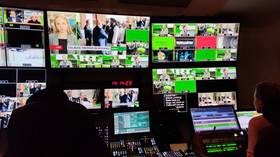
After RT's German-language channel was taken off air just hours following its launch, Moscow is drafting a package of retaliatory measures aimed at Berlin, Russian media outlets reported on Friday, citing government sources.
The proposed measures, which could be imposed in response to the blocking of RT DE, are said to range from restricting advertising for German companies in Russian online outlets to levying “harsh” fines on YouTube if it refuses to reinstate the channel. Also reportedly under consideration is taking the EU nation's state-owned broadcaster DW Deutsch and DW-TV broadcasters off the air in Russia altogether, a senior official told the Kommersant newspaper.
Berlin has denied claims that the authorities influenced YouTube's decision to take the channel down. However, Kommersant's source said that “the arguments from the German side that the government is not involved in the decision to restrict the RT DE activities over the ‘state status’ of the channel are not accepted,” the source said.
“Either some solutions regarding RT DE and its work are found, like it was done with other state-funded outlets, or retaliatory measures will be introduced,” the official stressed, adding that such outlets as “DW, BBC and many others” receive state funding, yet are allowed to operate in Germany freely.
The retaliatory measures may also include some unspecified restrictions imposed on individual German journalists working in Russia, another government source told RIA Novosti, without providing any further detail.
The measures may also apply to German journalists working in Russia.
RT’s new round-the-clock German-language channel was launched on December 16 2021. The outlet went on the air from Moscow and was broadcast in the EU under a valid license through Serbia, obtained under the European Convention on Transfrontier Television (ECTT).
The launch of the channel, however, faced multiple obstacles, including German banks abruptly refusing to work with the broadcaster and Luxembourg shooting down its licensing bid. Multiple media reports suggested the small European state was pressed into refusing the license to RT DE by Berlin, with then-Chancellor Angela Merkel officially denying she had had a role in the decision.
The channel’s YouTube page ended up banned on the very same day the satellite broadcasting was launched. The American tech giant claimed the page was created in violation of earlier restrictions, which had been placed on the outlet over allegations it had attempted to circumvent a ban imposed for spreading "medical misinformation."
European satellite TV operator Eutelsat took the channel off the air shortly after, giving in to pressure from German media regulator MABB, which claimed the channel must obtain a license in the country to operate.
RT, however, has denied any wrongdoing, arguing that the German-language channel was broadcast from Moscow and reached EU customers through Serbia, where it has a license that is valid through 2029. While Serbia is not an EU member, it has been a part of the ECTT communications treaty since 2010.
